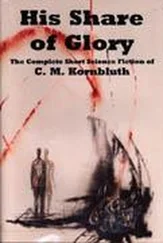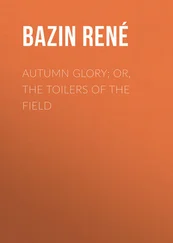James L. Nelson
Glory In The Name
A Novel of the Confederate Navy
To Ed Donohoe-engineer, mariner, raconteur-in grateful
appreciation of your help and friendship
Then call us Rebels if you will
We glory in the name,
For bending under unjust laws
And swearing faith to an unjust cause,
We count as greater shame.
– Richmond Daily Dispatch, May 12, 1862
Book One
A Thimbleful Of Blood
1
…At twenty-five minutes past four o’clock A.M., the circle of batteries with which the grim fortress of Fort Sumter is beleaguered opened fire.
– Report of the Charleston Press
Oil on canvas, in his signature fine brushstroke, Samuel Bowater painted the opening shot of the War for Southern Independence.
He stood on a small, grassy rise at White Point Gardens at the very tip of Charleston, where the Cooper and Ashley rivers met. From there he looked out over the dark water of Charleston Harbor, six miles to the open ocean and the weak gray band of light in the east.
It was a cool morning, early April, and the damp found its way through his frock coat and the white linen shirt he wore under it. Civilian clothing, not nearly as warm as the uniform he was used to. A cloak coat was draped over his shoulders. He pulled it snug, rubbed his arms together, hunched his shoulders as he waited for the light to come up. The air smelled heavily of salt marsh and the smoke from early-morning fires wafting from chimneys. What sounds there were were muted and distant-birds and crickets, the lap of waves, the creaking of ships at the wharves.
Charleston was holding its breath. It had been for some time, since Anderson left Fort Moultrie for Sumter, and it could not continue to do so much longer.
In front of him, still lost in the predawn dark, the twenty-by-twenty-four-inch canvas on which he had been working for the past five mornings.
Samuel stared out past the black humps of land which were just becoming visible in the morning light, out toward the sea, where the growing dawn was beginning to bleach out the stars and the night sky.
He wanted to be ready for that moment when night yielded to dawn, when the daylight asserted itself and the tenor of everything changed. It was a moment he had witnessed a thousand times at sea, and now he wanted to re-create it on the canvas.
And then, right in front of him and four miles off, a sharp muzzle flash of red and orange, and lifting up from that flash, a long, hair-thin arc of light where the burning fuse of the shell tracked against the dark sky. Samuel Bowater swallowed, closed his eyes as the familiar flat pow of the distant artillery caught up with him.
It was followed immediately by another, and then the twin explosion of the shells.
So it shall be war…
It was a resolution, at least. For months Bowater had been knocked about by the crosscurrent of speculation and rumor; the likelihood of peace, then the near certainty of war, then back again. Now, with the single jerk of a cannon’s lanyard, the question was decided.
Morris Island , he thought. The shot had come from Morris Island. Stevens’s Iron Battery.
Samuel Bowater, thirty-three years of age, lieutenant, United States Navy, on extended leave, had been kicking around his hometown of Charleston for months with little to do. He had come to know the harbor defenses well.
It would be days before he learned that the honor of firing that first shot had been offered to Congressman Roger Pryor of Virginia. That Pryor, understanding as Bowater did the enormity of the act, could not bring himself to pull the lanyard.
It would be a long four years before he read that the man who did finally discharge that shot, Edmund Ruffin, put a gun to his head rather than suffer the unbearable burden of a lost cause.
But that was in the future.
Samuel opened his eyes.
From all around Charleston Harbor, from Fort Moultrie and Stevens’s Iron Battery, the Floating Battery, and the Dahlgren Battery, the Enfilade Battery and Major Trapier’s Battery and Fort Johnson, the guns opened up on the sixty-eight Union troops huddled in Fort Sumter. The dark harbor was ringed with flashes of light, the bombardment so insistent that in some places it looked as if the shore had taken fire, and the bright trails crisscrossed the sky.
It was an awesome sight, beautiful and terrible at the same time. But in his mind Samuel Bowater saw only that first flash, that first arch of light.
The sky was growing rapidly brighter, and Samuel picked up his thinnest brush. He angled his paint kit toward the east, found the tube of cadmium yellow, squeezed a pea-sized drop on his palette. He stood back, but it was not yet light enough for him to see the canvas. He picked up the easel, turned it so the gray dawn light fell on the painting.
He took one last look at the harbor, the flames from the guns’ muzzles, the streaks through the air like a hundred falling stars, and now the bright flash and deep rumble of shells that found Fort Sumter and exploded against its twelve-foot-thick walls.
Samuel turned back to the canvas. He dabbed the brush in the yellow paint, sighed, touched the sharp pointed bristles to the canvas right at Morris Island, and made a little slash of light, up and off to the left.
He squeezed yellow ocher onto the palette, augmented the yellow on the canvas, and then added red, blending the colors until he had the subtle multihues of a muzzle flash, as he himself had seen it that morning and so many times before.
He stood back, dabbed the cadmium yellow again, took a deep breath. One stroke to paint the trail of the shell’s fuse, but it had to be perfect. He moved his hand over the canvas, the brush less than an inch from the surface, practicing the trajectory.
The dull sounds of the ceaseless bombardment surrounded him like a soft gray blanket of noise. And below that sound he heard another-cheering, shouting from the rooftops and along the harbor walls and from the ships tied up to their docks-but like the gunfire he was hardly aware of it. He was no longer in that scene, he was completely in his canvas. The painting was his world and he was aware of no other.
Slash, slash, and then the tip of the brush came down on the canvas and a long, arching yellow streak cut across the oil sky, reaching its apex and dropping toward the small hump that was Fort Sumter.
Samuel Bowater stepped back, let out his breath, took in the canvas as a whole.
Perfect. It was just as he had seen it. Now, regardless of what happened next, of what he saw in the years to come, of how his memory of that morning was polluted by the dubious influences to which memory is susceptible, regardless, that moment was captured forever in oil.
He pulled his eyes at last from his canvas. A dozen people had joined him on his grassy rise, pointing toward the batteries and whooping and shouting and carrying on without the least shred of dignity, and more were hurrying toward them.
They had come to gawk, while Bowater had come to paint. He frowned at the intrusion, disapproved of the sentiment that made those civilians come running as if this act of war was a burlesque. Under his own strict code, he would not consider indulging his curiosity in so crass a way.
Samuel turned back to the action in the harbor.
The sun was up, dull yellow behind the veil of thin clouds, and the muzzle flashes and the streaks from the flying shells were not nearly so bright. But the sound was a continuous rumble now, and the gray clouds of smoke hung like morning mist over the batteries.
The smell of gun smoke reached the city at last. Samuel took a deep breath, and with that smell a thousand memories came back. Until he had taken leave of the navy five months before, there was rarely a day that passed that he did not smell it.
Читать дальше








